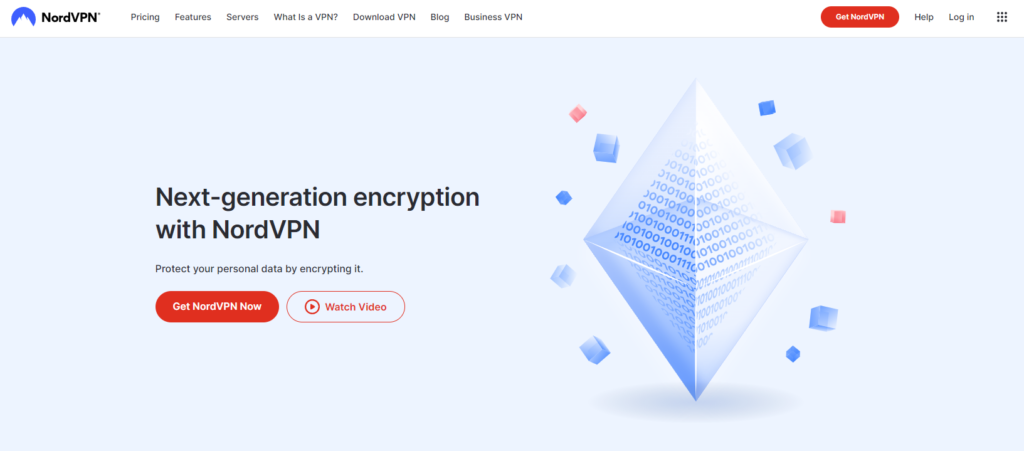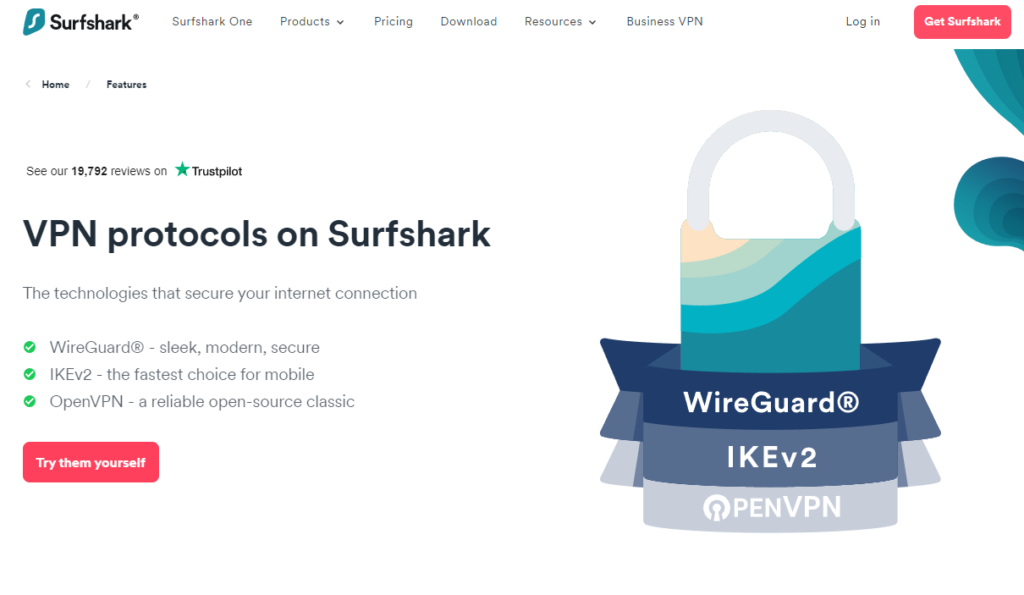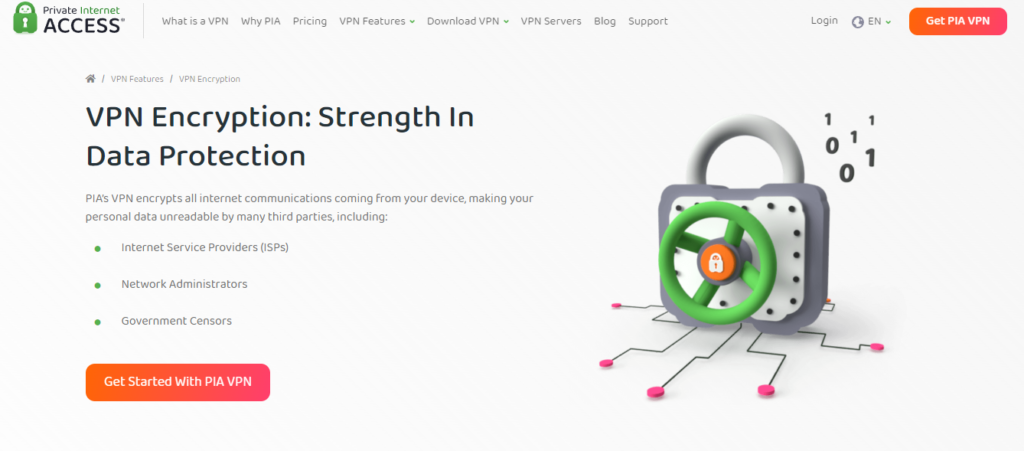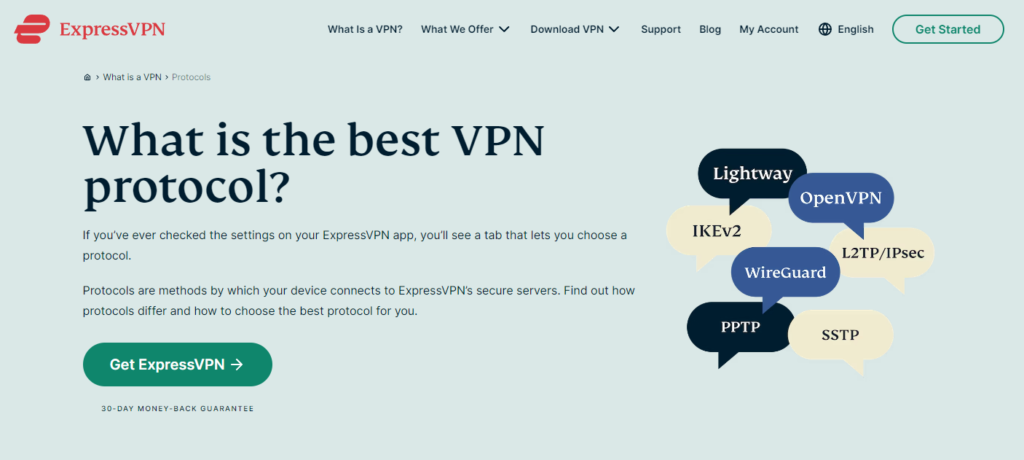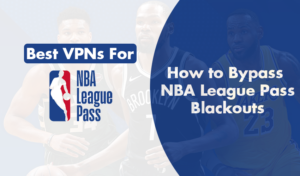The world of Virtual Private Networks (VPNs) is filled with various protocols. One such protocol you might encounter in your digital journey is the Point-to-Point Tunneling Protocol (PPTP). Despite being one of the first VPN protocols, PPTP still holds relevance in today’s digital landscape. This comprehensive guide will help you understand the nuances of a VPN with PPTP, its advantages and disadvantages, how to pick the best one, and the alternatives available.
Understanding PPTP: A Brief Overview
PPTP, a brainchild of Microsoft, has been around since 1995. It was developed to route network traffic over unsecured networks like the Internet, enabling the creation of corporate networks that could rely on publicly available infrastructure.
First Released Encryption Strength Stream Cipher Authentication Connection Stability Speed Known Vulnerabilities 1995 (Microsoft) 128-bit RC4 CHAP, MS-CHAP Good Very Fast Brute force, dictionary attacks, bit-flipping
The Security Aspect of PPTP
Despite its age, PPTP isn’t devoid of flaws. The encryption cipher it uses is antiquated, making it susceptible to brute-force attacks by sophisticated entities, including hackers and governmental agencies. PPTP uses 128-bit encryption, with handshake authentication generally provided by MS-CHAP. This, however, doesn’t ensure complete security, as even amateur hackers have tools that can decipher the password from the key exchange, compromising the entire VPN session.
Expert Consensus: Security professionals consider PPTP to be an insecure, outdated protocol.
OS Support and Setup for PPTP
PPTP’s longevity can be attributed to its widespread support across most major operating systems. It enjoys native support on Windows, Android, MacOS, and iOS. For other operating systems such as Linux and FireOS, a VPN client that enables this functionality is needed. PPTP is also compatible with both wired and wireless networks and can be created by compatible VPN routers.
Setting up a PPTP connection is relatively simple, thanks to its native support on popular operating systems. It typically requires a server address, username, and password provided by your VPN service.
Should You Opt for PPTP?
Before choosing PPTP, it’s crucial to weigh its pros and cons. While PPTP is plagued with numerous vulnerabilities, it also offers a few advantages that may make it suitable for specific use cases.
Advantages of PPTP
- Exceptionally fast speeds
- Easy setup process
- Native support by most operating systems
- Broad support across VPN services
- Compatibility with VPN routers
Disadvantages of PPTP
- Relatively weak 128-bit encryption
- Numerous vulnerabilities and attack vectors
- Susceptibility to attacks from skilled individuals
- Easily blocked by firewalls
- Requires router pass-thru
Ideal Use Cases for PPTP
While PPTP has several weaknesses, it still has a few use cases where it can be beneficial. These situations are predominantly where security isn’t the primary goal, and the focus is on hiding the location and IP address while retaining most of the available bandwidth.
Best Uses for PPTP:
- Torrent downloading
- Streaming/Unblocking
- Accessing websites with usage or location restrictions
- Use on devices where other protocols are unavailable or unstable
When NOT to use PPTP:
- When security is crucial
- If stronger than 128-bit encryption is needed
- If your ISP blocks VPN traffic
- If your VPN server is located far away
- If you have easy access to Alternative protocols
Exploring Alternatives to PPTP
While PPTP offers certain benefits, its fundamental security flaws make it less desirable for situations requiring robust security. Let’s explore some alternatives for a VPN with PPTP.
L2TP/IPSec
L2TP/IPSec closely resembles PPTP in terms of setup ease, performance, and OS support. It offers extremely stable tunnels, albeit with slightly slower speeds due to stronger encryption.
IKEv2/IPSec
IKEv2/IPSec is an alternative to L2TP. It offers even better security and equivalent, if not superior, performance. However, native OS support for IKEv2 is still limited.
OpenVPN
OpenVPN is a popular open-source protocol and the default option for nearly every VPN software client. It is highly flexible and works on most devices and operating systems.
Wireguard
Wireguard is the newest mainstream protocol, still proving its worth in the eyes of security researchers. It uses elliptic curve encryption (ECC) to achieve an optimal blend of security, stability, and performance.
Best VPNs That Offer PPTP Protocol
Choosing the best VPN (Virtual Private Network) that offers the Point-to-Point Tunneling Protocol (PPTP) can be a complex task, given the myriad of options available in the market. Several criteria should be taken into consideration to ensure you select a high-quality VPN with PPTP that meets your specific needs and requirements.
The first factor to consider is the security and privacy level of the VPN. Despite PPTP being one of the oldest protocols, it’s known for its vulnerabilities and weaker encryption compared to other protocols. Therefore, when selecting a VPN that uses PPTP, it’s crucial to choose one that implements high-end security features such as strong encryption algorithms and secure DNS leak protection. Some VPN providers also offer additional protection layers like a kill switch feature, which further enhances your online security.
Another critical aspect to consider is the speed and performance of the VPN. PPTP is known for its faster speeds compared to other protocols, making it an excellent choice for activities like streaming and gaming. However, the speed can vary significantly between different VPN providers. Therefore, it’s essential to select a VPN with PPTP that guarantees high-speed connections and unlimited bandwidth.
Thirdly, the geographical coverage of the VPN provider plays an essential role. A good VPN should have a wide range of server locations worldwide, allowing users to bypass geo-restrictions effectively. Besides, having more server options can also contribute to better speeds and performance.
User-friendliness is another critical factor in selecting a VPN. The best VPNs are easy to install and use, even for those with little technical knowledge. They should offer intuitive interfaces and provide detailed setup guides for different devices.
Lastly, consider the customer support provided by the VPN provider. Reliable customer service is vital in case you encounter any issues or have questions about the service. The best VPNs offer 24/7 customer support through various channels such as live chat, email, or phone calls.
In conclusion, when choosing a VPN with PPTP, it’s crucial to consider factors such as security features, speed and performance, geographical coverage, user-friendliness, and customer support. By carefully evaluating these criteria, you can ensure you select a VPN that offers not only PPTP but also meets all your internet needs effectively.
NordVPN – Fastest PPTP VPN
NordVPN has consistently proven itself to be a leader in the world of virtual private networks (VPNs), offering robust security features, a user-friendly interface, and exceptional speed. Its ability to support Point-to-Point Tunneling Protocol (PPTP), makes it an ideal choice for those seeking a VPN with PPTP. The PPTP VPN protocol, although not as secure as some of its contemporaries, is lauded for its compatibility with older operating systems and its ability to provide faster connection speeds. This makes NordVPN an excellent choice for users who value speed and compatibility.
One of the top features that make NordVPN the best PPTP VPN is its impressive speed. Efficiency is a critical aspect when it comes to VPN use, and NordVPN excels in this area. It boasts a large network of over 5400 servers in 59 countries, which ensures users have ample options for establishing fast and reliable connections. Using NordVPN’s PPTP protocol, users can enjoy a seamless internet experience with minimal lag or buffering.
Another feature that sets NordVPN apart as a leading PPTP VPN is its commitment to security. While PPTP itself might not be the most secure protocol, NordVPN’s additional security features compensate for this. NordVPN uses AES-256 encryption, which is virtually unbreakable, to protect user data. It also offers features such as Double VPN, which routes your internet traffic through two servers instead of one for an added layer of security.
User privacy is another key area where NordVPN shines. It adheres to a strict no-logs policy, ensuring that your online activities are not tracked or recorded. Moreover, it operates under the jurisdiction of Panama, which is not part of any international surveillance alliances. This means that your data cannot be legally handed over to any third parties.
Ease of use is another hallmark of NordVPN’s service. The platform is designed to be intuitive and user-friendly, making it easy even for beginners to establish and manage their VPN connections. Furthermore, NordVPN offers 24/7 customer support through live chat and email, ensuring that assistance is readily available when needed.
In conclusion, NordVPN’s speed, security features, privacy policies, and user-friendliness make it an outstanding PPTP VPN option. Its commitment to delivering an efficient, secure, and private online experience sets it apart as the go-to choice for users seeking a reliable VPN with PPTP.
Surfshark – Reliable VPN With PPTP Available
Surfshark is one of the leading VPN service providers in the market today, offering a strong and reliable PPTP VPN service. It stands out due to its unique features that ensure a high level of security, privacy, and speed. These top features make Surfshark a good choice for users seeking a robust PPTP VPN.
Arguably, one of the most impressive features of Surfshark is its robust network of PPTP VPN servers. The company offers over 3200 servers in 65 countries worldwide. This extensive network ensures that users can always find a server nearby, which can significantly improve connection speed and reliability. Moreover, these PPTP VPN servers are strategically distributed worldwide, offering users a wide range of virtual locations to choose from. This is particularly useful for bypassing geo-restrictions on content.
Another distinctive feature that makes Surfshark a good PPTP VPN is its strong encryption. Surfshark uses AES-256-GCM encryption, which is considered to be one of the safest encryption methods. It ensures that all data transmitted via the VPN is securely encrypted, protecting users from hackers and other potential threats.
Surfshark also boasts an automatic kill-switch feature. In case your VPN connection drops unexpectedly, this feature will automatically cut your internet connection, ensuring that your data isn’t leaked over an unsecured network.
In addition, Surfshark’s CleanWeb feature provides an added layer of security by blocking ads, trackers, and malware. This not only enhances your online privacy but also improves your browsing experience by eliminating unwanted ads and potential threats.
One more feature that sets Surfshark apart from many other PPTP VPNs is its unlimited device policy. Unlike most VPN services that limit the number of devices you can connect simultaneously, Surfshark allows users to connect an unlimited number of devices on a single subscription. This makes it a cost-effective solution for families or small businesses.
Lastly, Surfshark offers excellent customer support, with a 24/7 live chat option and a comprehensive knowledge base on its website. Having reliable customer support is crucial when using technology such as VPNs, where technical issues can arise unexpectedly.
In conclusion, with its extensive network of PPTP VPN servers, strong encryption, automatic kill-switch feature, CleanWeb security tool, unlimited device policy, and excellent customer support, Surfshark provides a robust and reliable PPTP VPN service to its users.
Private Internet Access – Beginner-Friendly VPN With PPTP Support
Private Internet Access (PIA) is a highly comprehensive and reliable PPTP VPN that offers a plethora of features making it one of the top choices for users seeking online security and privacy. One of the key aspects that make PIA stand out is its robust support for Point-to-Point Tunneling Protocol (PPTP) tunnels. These PPTP tunnels provide a secure conduit for transmitting data over an internet connection, thus ensuring that information remains safe from potential prying eyes.
The PIA VPN with PPTP protocol is renowned for its high-speed connectivity, providing users with quick and seamless internet access. This is particularly beneficial for those who require a VPN for streaming, gaming, or any other activities that demand high-speed internet. With PIA, you can enjoy these activities without experiencing any significant slowdown in your connection speed.
Another notable feature of PIA is its strong encryption standards. The service uses military-grade encryption to protect your data, which when combined with PPTP tunnels, provides an extra layer of security. This ensures that all the data transmitted over the VPN is encrypted and secure from hackers, government surveillance, and any other potential threats.
PIA also boasts a strict no-logs policy, meaning it does not store any user activity or data. This commitment to user privacy makes PIA a top choice for those who value their online anonymity. Additionally, PIA offers an automatic kill switch feature. This adds another layer of security by automatically disconnecting your device from the internet should the VPN connection drop unexpectedly, thus ensuring your data remains private.
Furthermore, Private Internet Access offers a high degree of configurability and compatibility. It supports multiple platforms including Windows, Mac, iOS, Android, and Linux. Moreover, it allows up to 10 simultaneous connections, which is relatively higher than what most other VPNs offer.
In conclusion, PIA’s robust PPTP tunnel support, high-speed connectivity, military-grade encryption standards, strict no-logs policy, automatic kill switch feature, and multi-platform support are among the top features that make it a good PPTP VPN. Whether you are a casual browser or a heavy-duty user requiring a high-speed secure connection for streaming or gaming, Private Internet Access offers a comprehensive VPN solution tailored to meet your needs.
ExpressVPN – Elite VPN Provider
ExpressVPN stands out as an exceptional PPTP VPN, thanks to its array of features designed to enhance user experience and guarantee security. Among its many attributes, several factors contribute to its reputation as a reliable VPN with PPTP. These features distinguish ExpressVPN as a top-tier option for individuals and businesses in search of secure, private, and unrestricted internet access.
One of the most prominent features of ExpressVPN is its unbeatable speed. Unlike many VPNs that slow down the internet connection speed, ExpressVPN ensures quick and seamless browsing, streaming, and downloading experiences. It allows users to enjoy uninterrupted internet services by connecting them to the fastest server available.
Security is another significant factor that makes ExpressVPN an excellent VPN with PPTP. It offers robust encryption protocols, including the option to use PPTP (Point-to-Point Tunneling Protocol), which provides a basic level of security sufficient for most uses. In addition to PPTP, ExpressVPN provides other advanced security protocols such as OpenVPN, L2TP/IPSec, and SSTP. These multiple levels of security protocols ensure that users can choose the right balance between speed and security depending on their specific needs.
ExpressVPN’s broad server network is another feature that sets it apart. With thousands of servers spread across various countries worldwide, users can be assured of consistent connection regardless of their location. This wide coverage ensures that users can bypass geo-restrictions and access content from different regions without any hurdles.
Furthermore, ExpressVPN offers a user-friendly interface that’s easy to navigate even for beginners. The setup process is straightforward and doesn’t require any technical knowledge. This ease of use extends to its dedicated apps for various platforms, including Windows, Mac, iOS, Android, and even routers.
Also noteworthy is ExpressVPN’s strong commitment to user privacy. It promises a strict no-logs policy, ensuring that your online activities are not tracked or stored. This feature is particularly important for users who prioritize their online privacy and anonymity.
Lastly, ExpressVPN’s customer support is top-notch. The provider offers 24/7 live chat support to help users with any issues or inquiries they might have. The customer service team is known for being prompt, helpful, and knowledgeable, adding another layer of reliability to this VPN service.
In conclusion, ExpressVPN’s high-speed performance, robust security features, extensive server network, user-friendly interface, commitment to privacy, and excellent customer service make it a superb choice for a PPTP VPN. Whether you’re looking for a VPN for personal use or business purposes, ExpressVPN provides a well-rounded solution that caters to a wide range of requirements and preferences.
How Does the PPTP Protocol Work?
Here’s how PPTP works: 1. **Establish Connection**: The remote client initiates a TCP connection with the PPTP server over port 1723. This is the control channel used for sending control messages.
- Authentication: After the TCP connection is established, the PPTP tunnel is formed when the client sends a PPTP start-control-connection request. The server responds, and if the server is satisfied with the client’s credentials, the connection is authenticated.
- Creating the Tunnel: To encapsulate the data packets, a network control protocol (NCP) session is created. The data is then packaged and sent through the tunnel.
- Data Transfer: The client and the server now transfer data between them using a modified version of the Generic Routing Encapsulation (GRE) protocol. This is the data channel used for sending data messages.
- Termination: After the data transfer, the connection is terminated using a clear-control-connection message. If either side doesn’t respond, the other side will terminate the connection.
Throughout the process, PPTP uses various protocols such as TCP, GRE, and PPP (Point-to-Point Protocol) to ensure secure and efficient data transfer.
For example, consider an employee working remotely and needing to access files on the company server. The employee’s computer (remote client) would initiate a PPTP connection with the company server (PPTP server). The server would verify the employee’s credentials, and upon successful authentication, a secure tunnel is created. The employee can then access the files securely over this tunnel as if they were connected directly to the company network.
It’s important to note that while PPTP is widely supported and easy to set up, it’s not the most secure VPN protocol available today. Newer protocols like L2TP/IPsec, OpenVPN, and IKEv2 are often recommended for better security.
What Devices Still Support PPTP?
Various security concerns associated with this protocol have led to it being deprecated or unsupported by various organizations. Despite this, there are still some devices and operating systems that support PPTP.
- Windows Operating Systems: Windows has native support for PPTP. All versions, including Windows 7, 8, 10, and subsequent versions, provide built-in options to set up a PPTP connection.
- Apple Devices: PPTP was supported on older versions of iOS and Mac OS X, up to and including Mac OS X El Capitan and iOS 9. However, starting from macOS Sierra and iOS 10, Apple has discontinued support for PPTP.
- Android Devices: Android also provides native support for PPTP. This is available in most versions of Android, although the actual setup process may vary slightly depending on the version and the device manufacturer.
- Linux Systems: Most Linux distributions also support PPTP. This might require manual configuration or the use of third-party software.
- Routers: Some older routers, and even some newer ones, support PPTP either as VPN servers or as VPN clients. This includes some models from Cisco, Mikrotik, and others.
Conclusion
While PPTP has mostly outlived its usefulness, it still holds some relevance thanks to its fast speeds and ease of setup. However, most users would be better served by other tunneling protocols, especially L2TP/IPSec and OpenVPN, which are two of the best alternatives to PPTP.
Though proven to be insecure, PPTP still has use cases where security isn’t the primary goal. If your main priority is hiding your location and IP address while maintaining most of your available bandwidth, PPTP could be a good fit.
In the end, the choice of protocol depends on your specific needs and requirements. Whether you choose a VPN with PPTP or its alternatives, it’s essential to understand what each offers and how it aligns with your digital needs.


